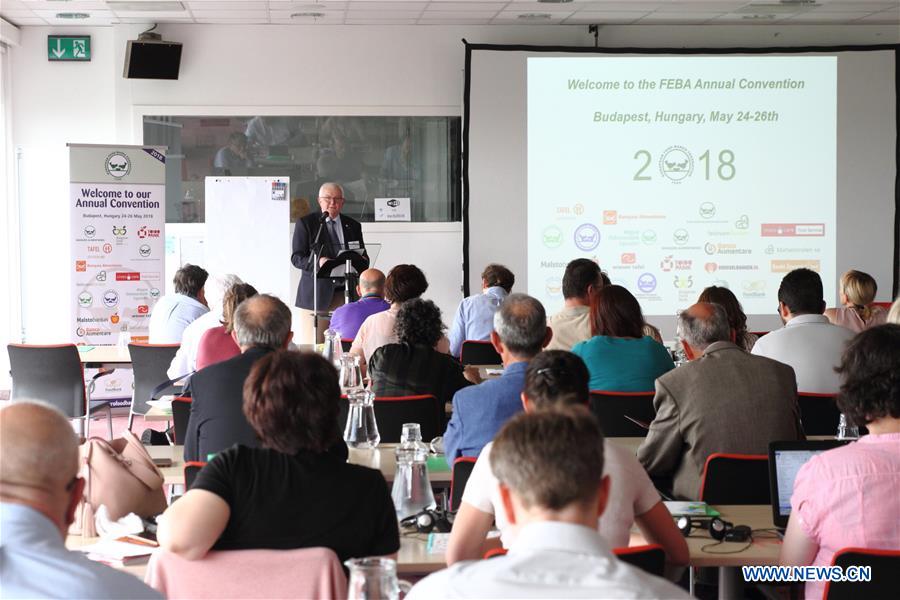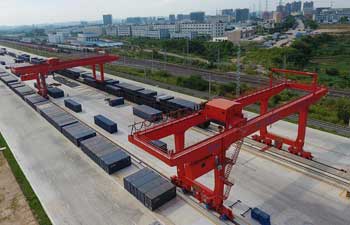 ?
?
Jacques Vandenschrik (Rear), president of the European Food Banks Federation (FEBA), speaks on the opening day of the 2018 Annual Convention of the FEBA in Budapest, Hungary, on May 24, 2018. The 2018 Annual Convention of the European Food Banks Federation, organized in collaboration with the Hungarian Food Bank Association, started here on Thursday. (Xinhua/Szilard Voros)
BUDAPEST, May 24 (Xinhua) -- The 2018 Annual Convention of the European Food Banks Federation (FEBA), organized in collaboration with the Hungarian Food Bank Association, started here on Thursday.
The 2018 Annual Convention brought together more than 100 participants from 30 countries and regions, including food bankers, policy-makers, business partners, leading experts and other NGO representatives.
The event focuses on "redistributing more nutritious surplus food -- opportunities and challenges," FEBA president Jacques Vandenschrik told Xinhua in a joint interview with the president of the Hungarian Food Bank Association, Balazs Cseh, before the start of the three-day conference.
"According to the available figures, 42 million Europeans suffered from severe material deprivation, meaning they could not afford a meal with meat, chicken, fish or vegetarian equivalent every second day," Vandenschrik underlined.
"At the same time, the food supply chain looks for a comprehensive response to tackle growing resource scarcity, promoting an efficient use of those resources and bringing healthy and safe food to as many people as possible," he added.
"Although we can see positive trends in terms of people becoming more sensitive to the question of stopping food waste, the problem is that close to 250 million people in Europe, and I speak in continental terms, not about the EU, are on the verge of poverty," he warned.
Vandenschrik saw education as the primary tool to stop food waste.
Cseh told Xinhua that the different campaigns to make people sensitive for the needs of others was very successful and the problem today was finding volunteers to distribute food rather than to find partners in giving away food products that are taken back from the shelves but are still good for human consumption.
"We work with two systems: in the first, the NGOs and volunteers come to a central depot, where our partners leave the food; while in the second, the volunteers and people from charity services go directly to the partners and get the food from there," he explained.
The convention will further explore how effective logistics and IT systems can improve the redistribution of surplus food to partner organizations.
FEBA brings together 388 food banks and branches which are committed to fight against food waste and to feed the most deprived. In 2017, FEBA provided 4.1 million meals each day to 8.1 million most deprived people through 44,700 charitable organizations thanks to the professionalism of 23,500 co-workers.
eration, organized in collaboration with the Hungarian Food Bank Association, started here on Thursday. (Xinhua/Szilard Voros)















